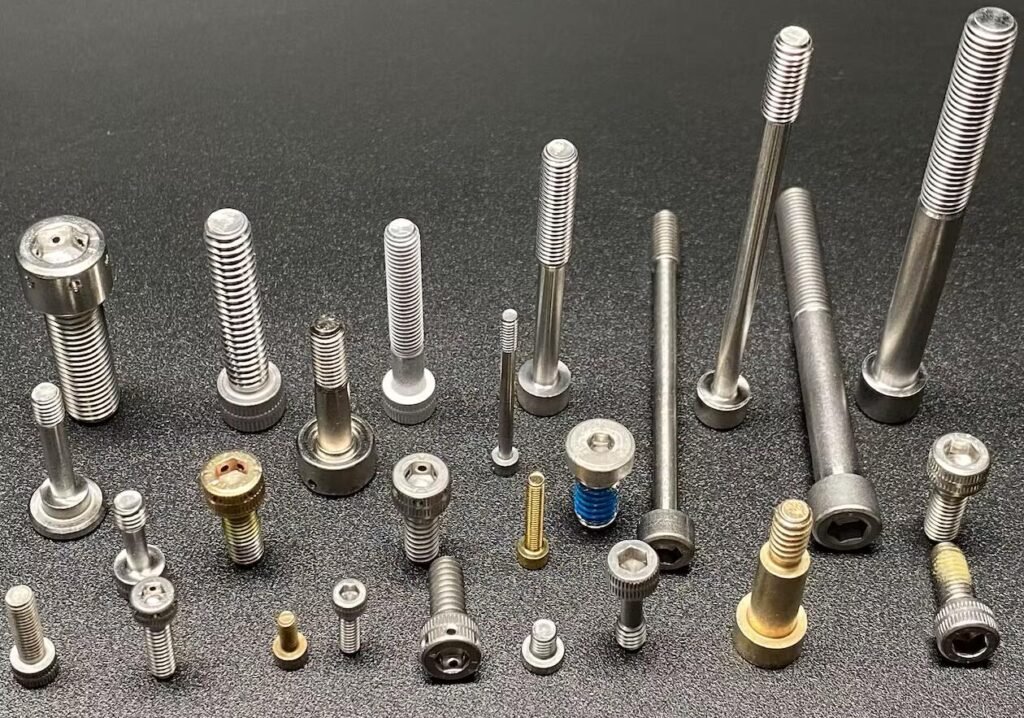When it comes to fastening solutions, the selection of screws and bolts is paramount to ensure the structural integrity and longevity of the assembly. Among the plethora of options, hex head screws and socket head cap screws are extensively used across various industries. This article delves into the distinctions between these two fasteners, considering their design, materials, applications, and respective advantages.

Understanding Hex Head Screws
Hex head screws are characterized by a hexagonal shaped head, which is driven using a wrench or spanner. The facets of the hexagonal shape provide multiple surfaces for the tool to grip, making them suitable for high torque applications. Hex head screws are used for fastening materials together through holes in the material with or without the use of nuts.
Understanding Socket Head Cap Screws
In contrast, socket head cap screws possess a cylindrical head with a hexagonal recess or socket inside the head. These screws are driven using an Allen wrench or hex key. The threads on socket head cap screws typically run the entire length, up to the base of the head. They are especially known for their high strength and are used in applications requiring a strong clamping force.
Material Choices
Both hex head screws and socket head cap screws can be manufactured from a variety of materials such as carbon steel, stainless steel, alloy steel, brass, and more. The choice of material is typically based on the specific application requirements such as tensile strength, corrosion resistance, and environmental conditions.
Head Design
One of the most prominent differences between hex head screws and socket head cap screws is the design of the head. Hex head screws have an external hexagonal shape, and you need a wrench or spanner to drive them. On the other hand, socket head cap screws have a cylindrical head with an internal hexagonal recess and require an Allen wrench or hex key for installation and removal.
Torque and Clamping Force
Socket head cap screws typically allow for higher torque application compared to hex head screws due to the closer engagement of the Allen wrench within the internal hex recess. This results in a higher clamping force, which can be critical in applications where vibration or dynamic loads are present.
Application Space and Aesthetics
Socket head cap screws have a more compact head, which makes them more suitable for applications where space is limited. The flush finishing of the socket head cap screws can be aesthetically more pleasing as compared to the protruding hex head.
Applications and Industries
Hex head screws are commonly used in construction, automotive, and heavy machinery industries. They are especially favored in applications where ease of maintenance and assembly is required, as the hex head can be easily gripped with tools.
Socket head cap screws are widely used in applications requiring precision and high strength. These include aerospace, manufacturing machinery, and electronic devices. Their neat appearance also makes them a popular choice for consumer products.
Selection Considerations
When deciding between a hex head screw and a socket head cap screw, consider factors such as required torque, available space, material of assembly, environmental conditions, and the visual appeal. Hex head screws are generally more accessible for adjustments since they can be tightened or loosened with common tools, while socket head cap screws might require a specific Allen wrench.
Advantages of Hex Head Screws
- Easier to work with using common tools.
- Suitable for high torque applications.
- Good for outdoor applications where maintenance might be needed.
Advantages of Socket Head Cap Screws
- Provides a higher clamping force.
- Compact and aesthetically pleasing.
- Ideal for precision applications and confined spaces.
Conclusion
Both hex head screws and socket head cap screws offer unique advantages, and the selection between them should be based on the specific requirements of the application. While hex head screws offer ease of use with common tools and are well-suited for high torque applications, socket head cap screws provide higher clamping force and a clean finish, ideal for applications with limited space or precision requirements. Understanding these differences and the demands of your project is critical for selecting the right fastener and ensuring the durability and performance of your assembly.
